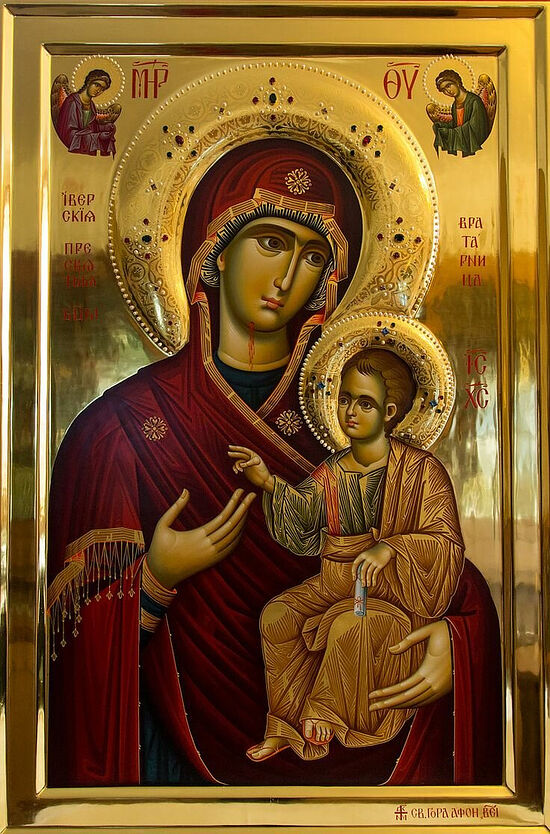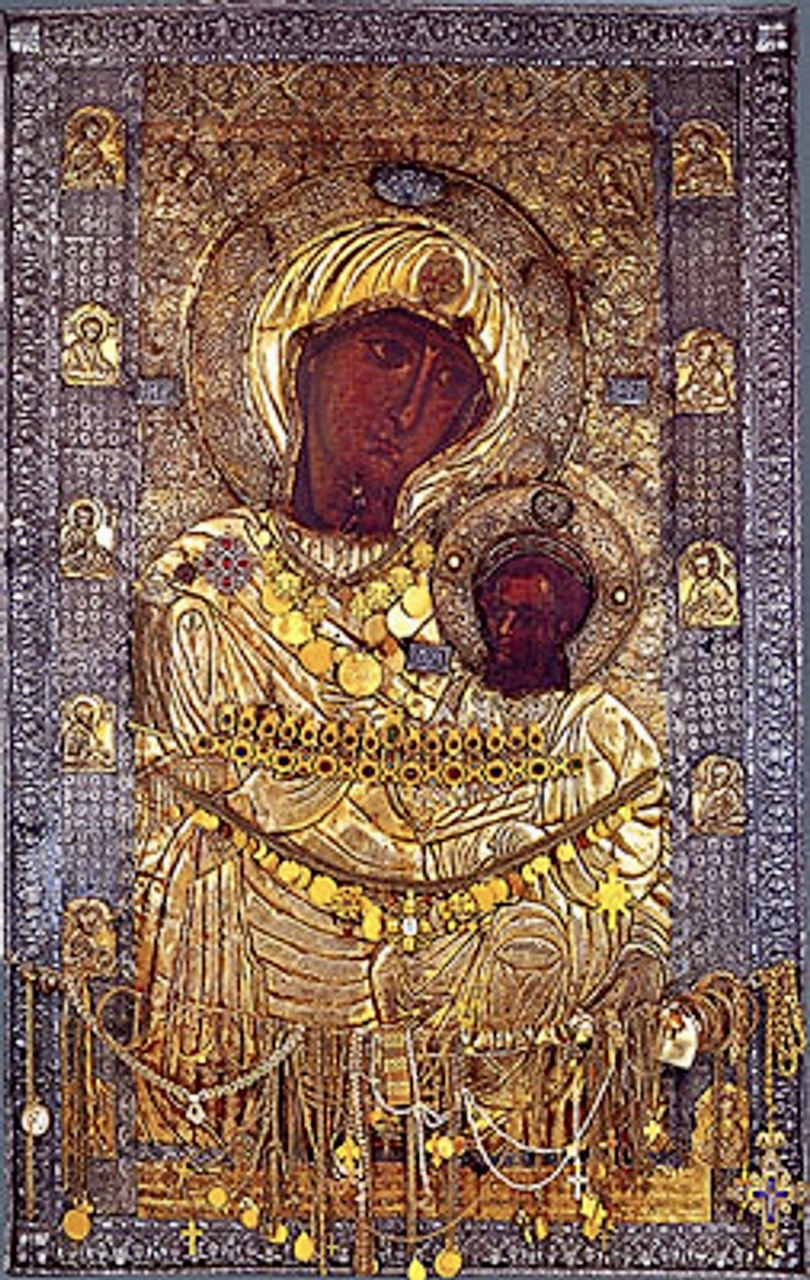The Canon of The Venerable One, the Acrostic Whereof Is: “I Offer a Hymn to the Wise Benedict”: The Composition of Joseph, in Tone II
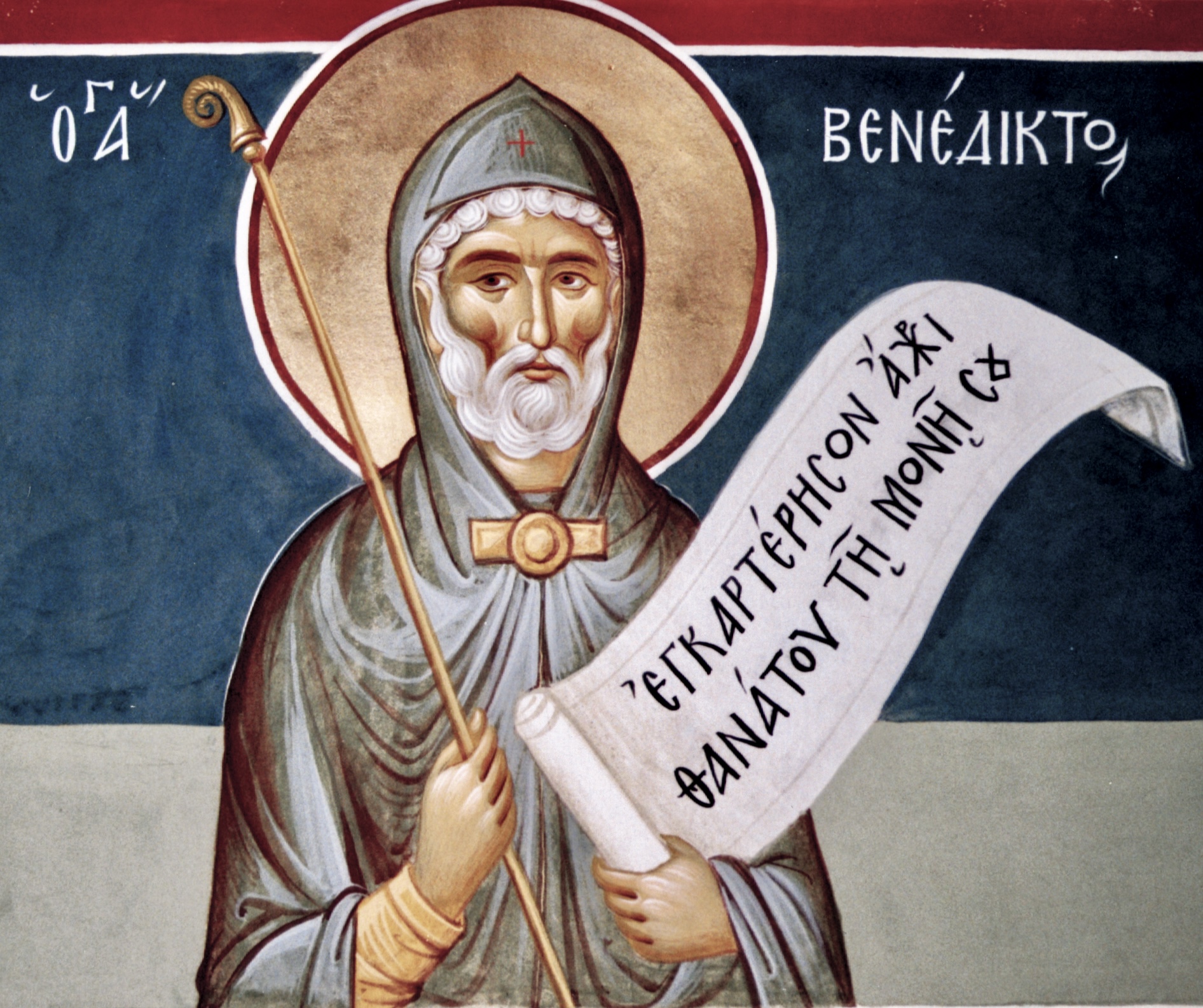
Ode I, Irmos: Come, O ye people, * let us sing a song to Christ our God, * Who divided the sea, * and made a way for the nation * which He had brought up out of the bondage of Egypt; * for He hath been glorified.
Venerable Father, Benedict, pray to God for us.
O venerable Benedict, pray thou that God grant deliverance from all trans- gressions and grace unto me who yearn to hymn thy right laudable memory.
Venerable Father, Benedict, pray to God for us.
Taking up thy cross from childhood, in monasticism thou didst follow after the Almighty; and having mortified the flesh, thou wast deemed worthy of life, O most blessed one.
Glory be to the Father, and to the Son, and to the Holy Spirit.
Subjecting thyself to the law of God, O right wondrous one, thou didst quell the uprisings of the passions with feats of abstinence, and wast enriched by the grace of dispassion.
Now and ever, and unto the ages of ages. Amen.
Enriched with incorruption on account of thee, O all-pure Birthgiver of God, we cry out to thee who art full of joy: Rejoice, O adornment of the venerable and the righteous!
Ode III, Irmos: O Lord, who didst slay sin upon the tree, * firmly establish us in Thee, * and in the hearts of us who hymn Thee * plant the fear of Thee.
Venerable Father, Benedict, pray to God for us.
Full of the living waters of the divine Spirit, O God-bearer, thy soul poured forth rivers of miracles, drying up the flow of ailments.
Venerable Father, Benedict, pray to God for us.
Thou didst pass over to abide in the vastness of paradise, O all-blessed one, having trodden the narrow path, and didst choke off the wiles of the demons and the ways of the disorderly.
Glory be to the Father, and to the Son, and to the Holy Spirit.
Watered with streams of thy tears, O Benedict, like a fruitful tree thou didst bring forth a divine harvest of virtues and miracles, by divine grace.
Now and ever, and unto the ages of ages. Amen.
He Who alone is good passed, incarnate, through thy womb, O most immaculate one, and was seen as a perfect man. Him do thou beseech, that He save those who hymn thee.
Sessional Hymn, Tone I: Being a monk in a manner pleasing to God, thou didst live virtuously and didst receive the grace of healing, O Benedict, working awesome miracles; and having assembled a sacred community, thou didst lead to the Lord multitudes of the saved, O most spiritually rich father. Glory to God Who enlightened thee! Glory to Him Who crowned thee! Glory to Him Who hath glorified thy holy memory!
Lord, have mercy. Lord, have mercy. Lord, have mercy.
Glory be to the Father, and to the Son, and to the Holy Spirit; now and ever, and unto the ages of ages. Amen.
Theotokion, Tone I: Stretching forth thy divine arms, wherewith thou didst bear the Creator Who in His goodness hath become incarnate, O most pure virgin, beseech Him to deliver from temptations, sufferings and tribulations us who praise thee with love and cry aloud: Glory to Him Who made His abOde within thee! Glory to Him Who issued forth from thee! Glory to Him Who hath delivered us by thy birthgiving!
Stavrotheotokion (replaces the Theotokion on Wednesdays and Fridays): In awe of Thy great and dread endurance, O Savior, the most pure one lamented bitterly and cried out to Thee Who wast crucified on the Cross by the iniquitous ones and whose side was pierced with a spear by the soldiers: Glory to Thy love for mankind! Glory to Thy goodness! Glory to Thee Who by Thy death hast rendered mankind immortal!
Ode IV, Irmos: I hymn Thee, O Lord, for I have heard report of Thee, * and I was afraid; * for Thou comest to me, seeking me who am lost. * Wherefore, I glorify Thy great condescension towards me, * O greatly Merciful One.
Venerable Father, Benedict, pray to God for us.
Having crucified thyself to the passions and the world, O father Benedict, thou didst please Christ Who stretched out His hands on the Cross of His own will. Him do thou entreat, that He save our souls.
Venerable Father, Benedict, pray to God for us.
With feats of abstinence didst thou mortify thy fleshly members, O venerable one; by thy prayer didst thou raise up the dead; thou gavest the paralyzed, who marveled in faith, the ability to walk, and didst heal every infirmity, O father.
Glory be to the Father, and to the Son, and to the Holy Spirit.
By thy vivifying discourse, O venerable one, didst thou render dry and desiccated souls fruitful, bringing forth spiritual and divine fruit, in that thou wast advanced by God, thou most sacred adornment of monastics.
Now and ever, and unto the ages of ages. Amen.
The incarnate Word descended upon thine honored womb like rain upon the fleece, O pure one, and manifestly halted the rains of polytheism and brought an end to the bitter winter, O all-immaculate one.
Ode V, Irmos: O Lord, Bestower of light and Creator of the ages: * guide us in the light of Thy commandments, * for we know none other God than Thee.
Venerable Father, Benedict, pray to God for us.
Entreating the God of mercy, O venerable father, like Elijah thou didst fill a cruse, a great vessel, with oil, a thing marveled at by those who watched with faith.
Venerable Father, Benedict, pray to God for us.
As one pure of soul, O all-blessed Benedict, in ecstasy, thou didst behold the whole earth resplendent as beneath a single light, for God so honoreth thee.
Glory be to the Father, and to the Son, and to the Holy Spirit.
Working miracles in Christ, O Benedict, by thy supplication thou entreatest the Judge of the contest, that water gush forth, which remaineth to this day, proclaiming thy wonders.
Now and ever, and unto the ages of ages. Amen.
He Who dwelleth in the heavens, so desiring, made His abOde within thy pure womb, that He might make habitations for the Trinity of us who proclaim thee to be the Theotokos, O pure one.
Ode VI, Irmos: Whirled about in the abyss of sin, * I appeal to the unfathomable abyss of Thy compassion: * Raise me up from corruption, O God.
Venerable Father, Benedict, pray to God for us.
Illumined by the effulgence of the Spirit, thou didst dispel the darkness of evil demons, O wonder-worker Benedict, most radiant lamp of monastics.
Venerable Father, Benedict, pray to God for us.
How glorious was thy life, O blessed one! How splendid thine honored life whereby thou didst draw the flock of monastics to knowledge of the Savior!
Glory be to the Father, and to the Son, and to the Holy Spirit.
As a resident of the kingdom of heaven, O divinely wise Benedict, pray thou, that we who ever faithfully bless thee may also attain it.
Now and ever, and unto the ages of ages. Amen.
The never-setting Sun of righteousness shone forth from thy holy womb and enlightened the faithful, O all-hymned virgin Theotokos.
Lord, have mercy. Lord, have mercy. Lord, have mercy.
Glory be to the Father, and to the Son, and to the Holy Spirit; now and ever, and unto the ages of ages. Amen.
Kontakion of the venerable one, Tone VI: Thouwast enriched by the grace of God, * and by thy deeds proclaimed thy name. * In prayer and fasting thou wast revealed to be * full of the gifts of the Spirit of God, * O Benedict, favorite of Christ God, * shown to be a healer of the infirm, ** as one who repulses the enemy, the ready helper of our souls.
Ode VII, Irmos: Of old the youths revealed themselves to be rhetors * with a love for supreme wisdom, * for from the depths of their God-pleasing souls, * they theologized with their lips as they sang: * O supremely divine God of our fathers, blessed art Thou!
Venerable Father, Benedict, pray to God for us.
Thou didst acquire life-bearing mortality by laying aside pleasures; wherefore, thou wast deemed worthy to resurrect the dead, O blessed Benedict, crying out: O supremely divine God of our fathers, blessed art Thou!
Venerable Father, Benedict, pray to God for us.
Astonishing a multitude of the faithful, thou didst do as did the great Elijah, raising up a garden for monks by thy venerable labors, and it remaineth ever walled about by thy supplications, O blessed one.
Glory be to the Father, and to the Son, and to the Holy Spirit.
The mindless ones who sought to murder thee with evil sorcery were put to shame, O father Benedict, denounced by the foreknowledge in thee, for thou wast preserved by the hand of Almighty God.
Now and ever, and unto the ages of ages. Amen.
Heal thou the passions of my soul, O Virgin who ineffably conceived the Well-spring of dispassion, and grant me a shower of compunction to bring me consolation there, O holy Theotokos.
Ode VIII, Irmos: God Who descended into the fiery furnace * with the Hebrew children, * and transformed the flame into dew, * do ye works hymn, * and supremely exalt as Lord throughout all ages.
Venerable Father, Benedict, pray to God for us.
Reigning in Christ over corrupting passions, O divinely wise father, thou wast deemed worthy to dwell in the heavenly kingdom with all who lived righteously and loved God Who seest all things.
Venerable Father, Benedict, pray to God for us.
Accepting thy holy supplications, through thee God bestowed the means to live upon those in want, glorifying thee exceedingly with miracles on earth, O thrice– blessed Benedict.
Glory be to the Father, and to the Son, and to the Holy Spirit.
Adorned with the beauties of godly virtues, thou didst pass on to the beautiful mansions to abide with God, O father, and to enjoy His divine beauties for ages without end.
Now and ever, and unto the ages of ages. Amen.
Behold, a Babe, the Son of the Most High, is born of thee, O pure one, as Isaiah crieth out, and He is seen to be thy Son also, O Virgin, making those who honor thee children of the heavenly Father.
Ode IX, Irmos: God the Word, God of God, * Who by ineffable wisdom came to create Adam anew * after his grievous fall to corruption through eating * and Who took flesh beyond all telling from the Holy Virgin for our sake, * Him we faithful with one accord magnify in song.
Venerable Father, Benedict, pray to God for us.
Thou wast shown to be like the great sun, illumining creation with awesome signs and rays of the virtues; wherefore, celebrating thy truly luminous memory, we are enlightened with compunctionate thoughts, O father.
Venerable Father, Benedict, pray to God for us.
The flock of monastics assembled by thee giveth praise day and night, having in their midst thy body which poureth forth rivers of miracles abundantly and unceas- ingly enlighteneth their steps, O wise father.
Glory be to the Father, and to the Son, and to the Holy Spirit.
Thou didst emit a radiance greater than that of the Sun, O father, fulfilling the commandments of God; and thou hast passed into never-waning light, praying that forgiveness of sins be granted to those who faithfully honor thee; O ever-memorable Benedict.
Now and ever, and unto the ages of ages. Amen.
O Virgin, bearer of the Light, drive thou the passions from my soul, and grant that I may behold, in pure manner, the beauty of the Savior Who shone forth ineffably from thy most pure womb, as a light to the nations, O all-hymned one.
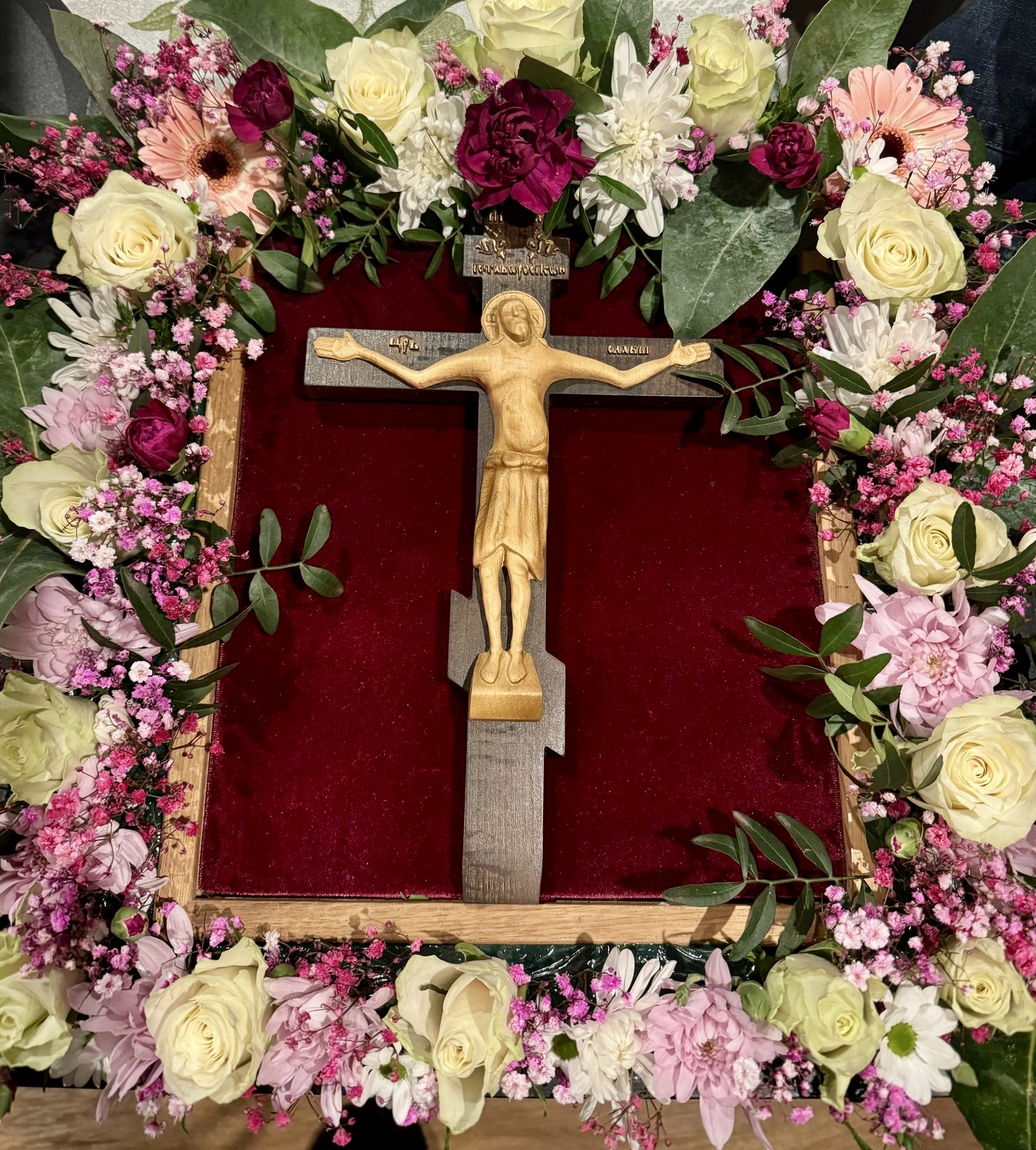 Dear brothers and sisters,
Dear brothers and sisters,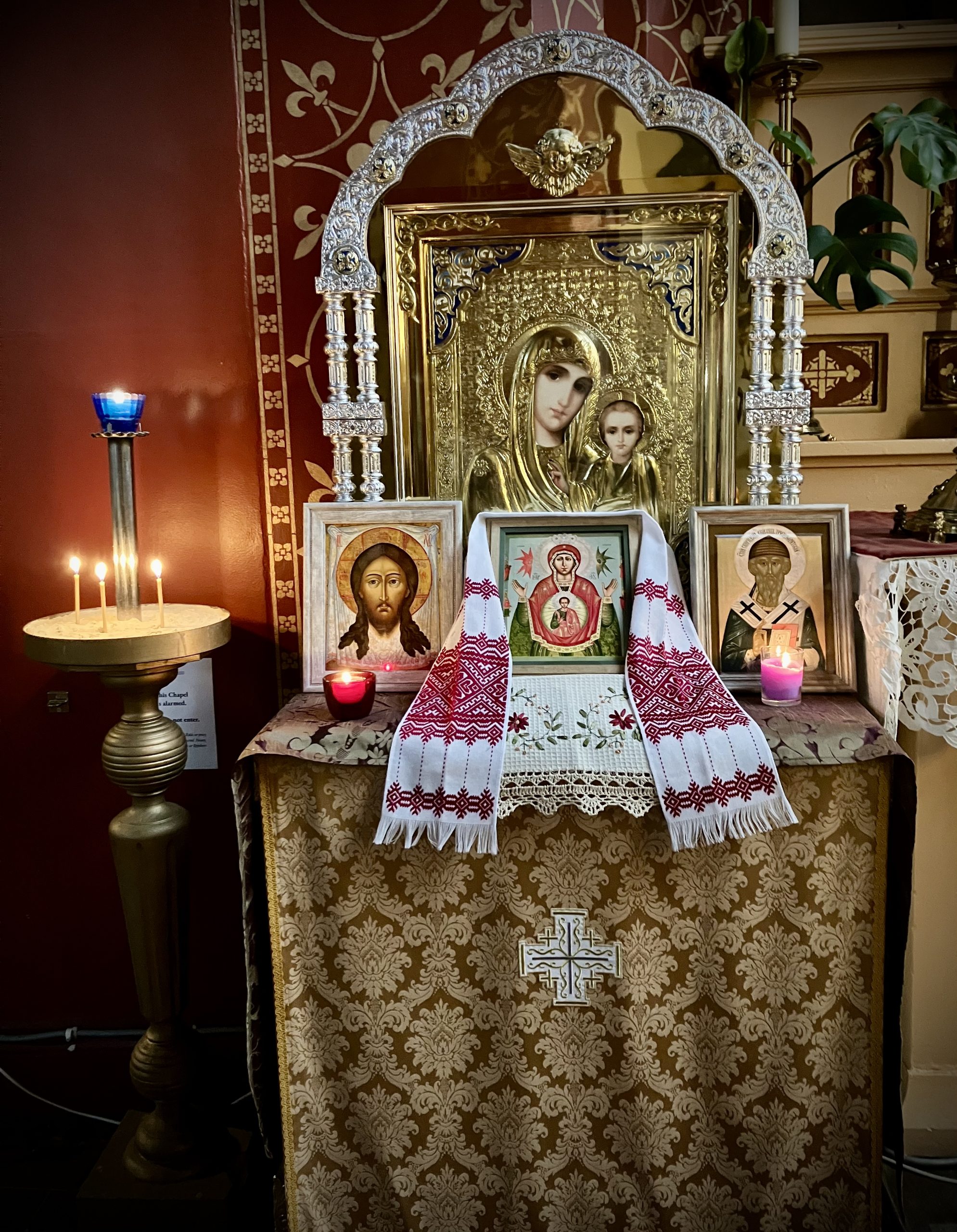 In the week ahead we will have our usual Thursday akathist in Nazareth House at 18:00 on Thursday, and devotions before the Cross in the Oratory at 14:00 on Friday.
In the week ahead we will have our usual Thursday akathist in Nazareth House at 18:00 on Thursday, and devotions before the Cross in the Oratory at 14:00 on Friday. 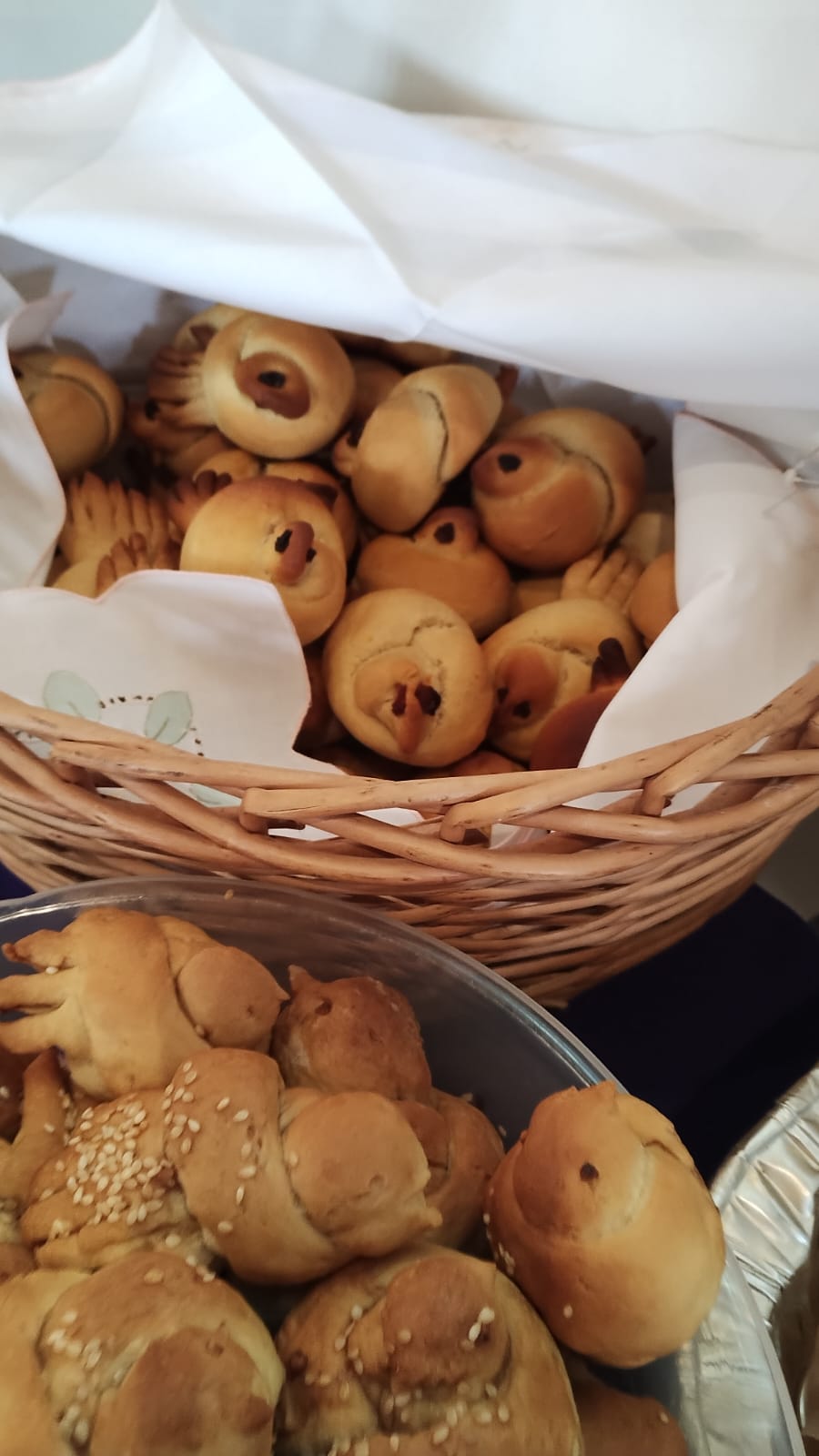
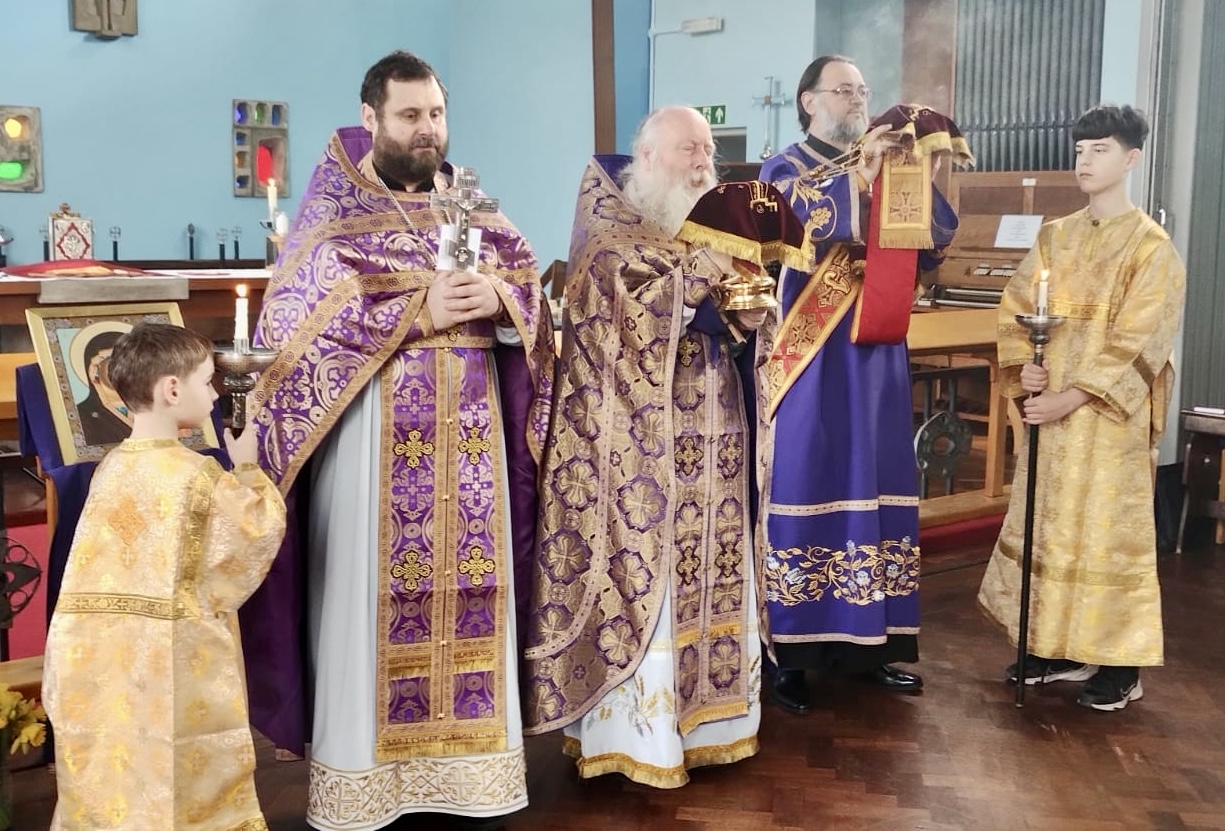 Dear brothers and sisters,
Dear brothers and sisters,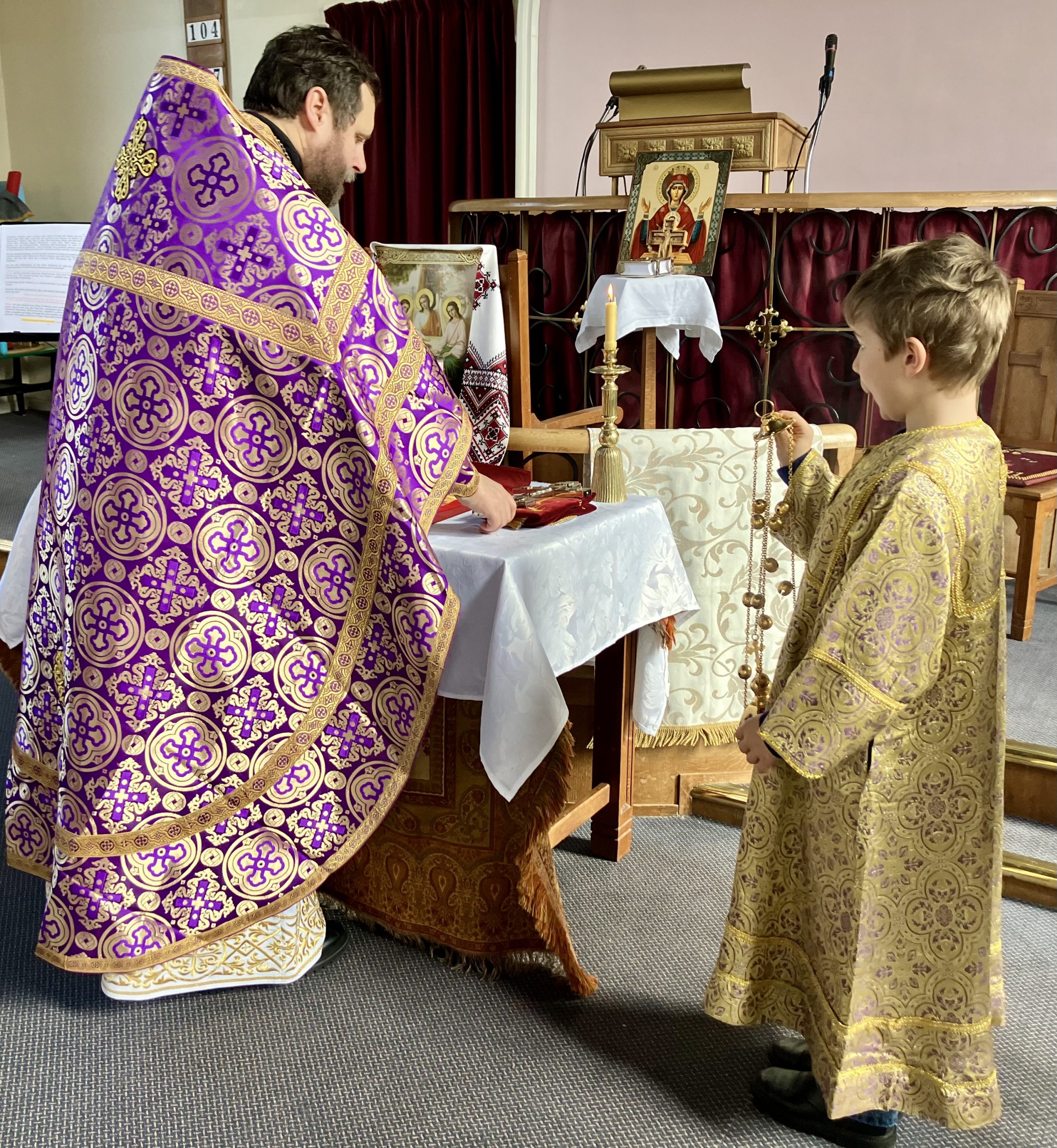


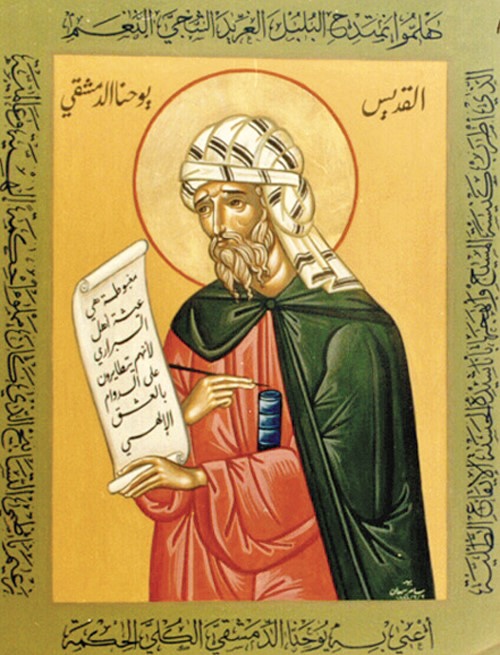
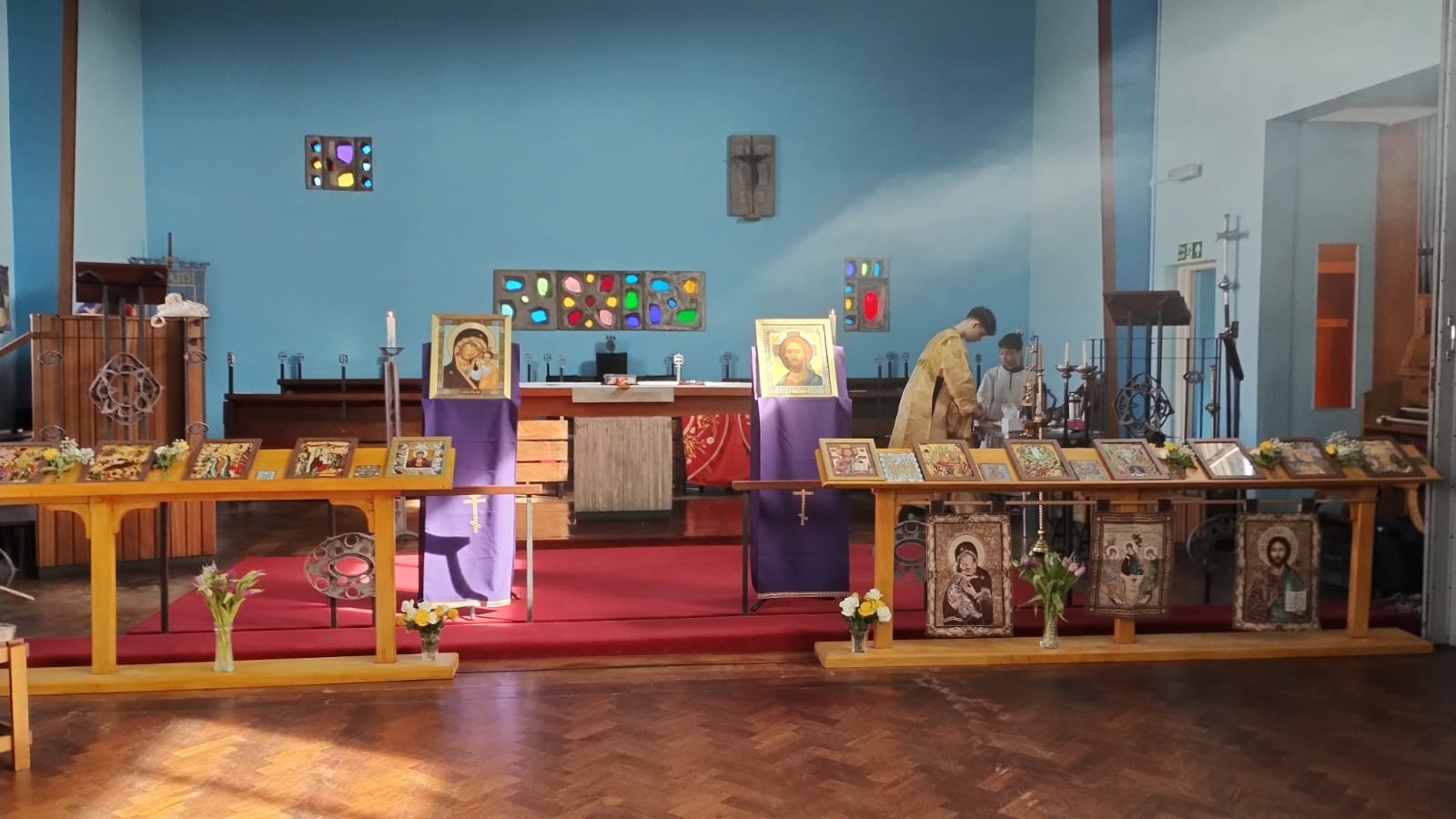 Dear brothers and sisters,
Dear brothers and sisters,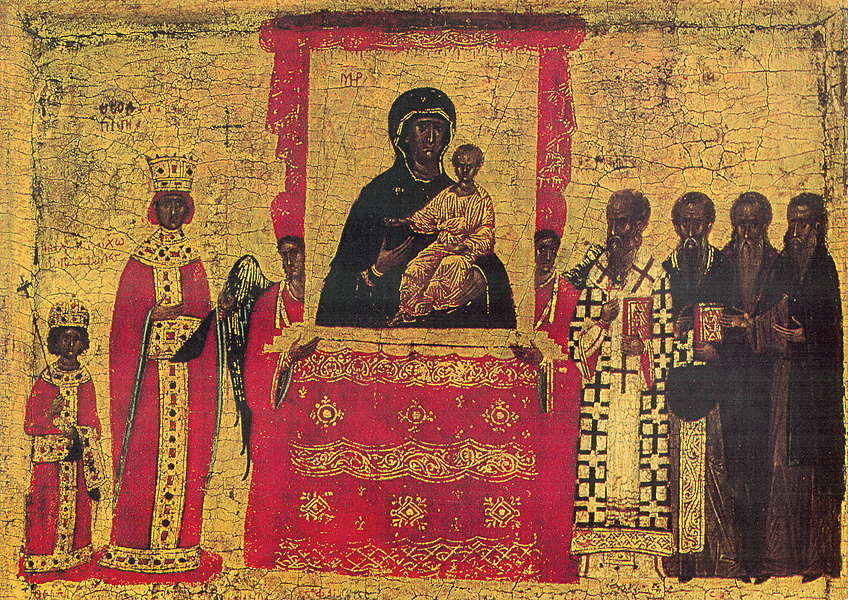
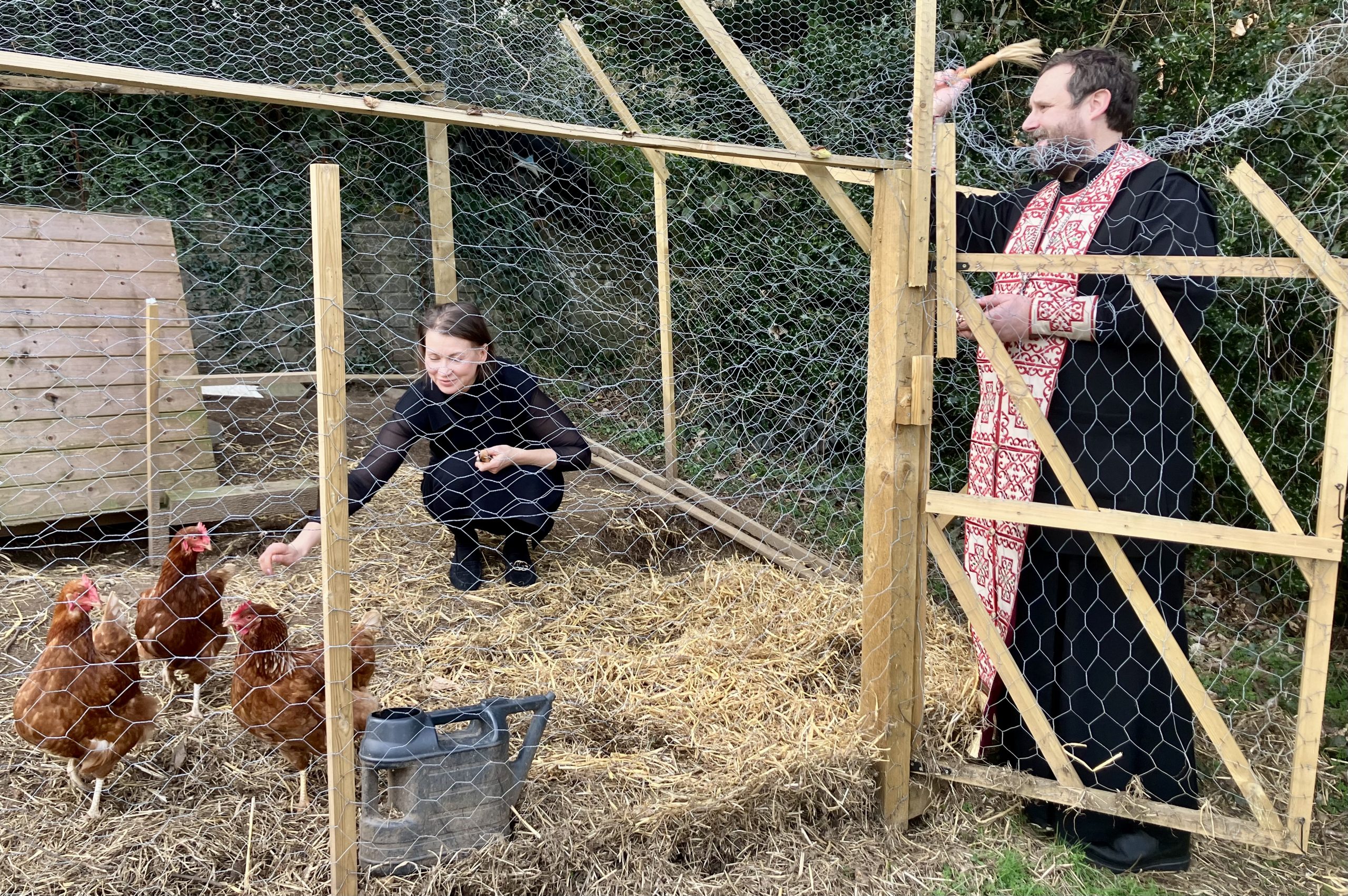
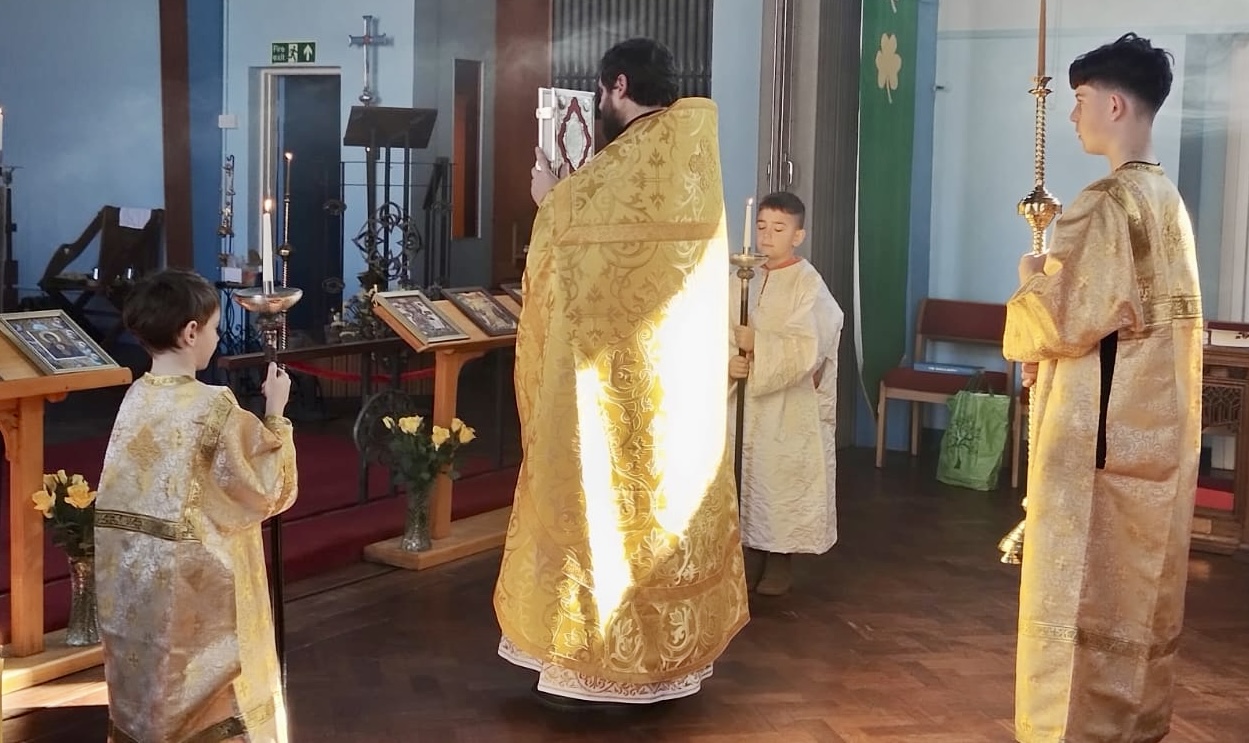 Dear brothers and sisters,
Dear brothers and sisters, 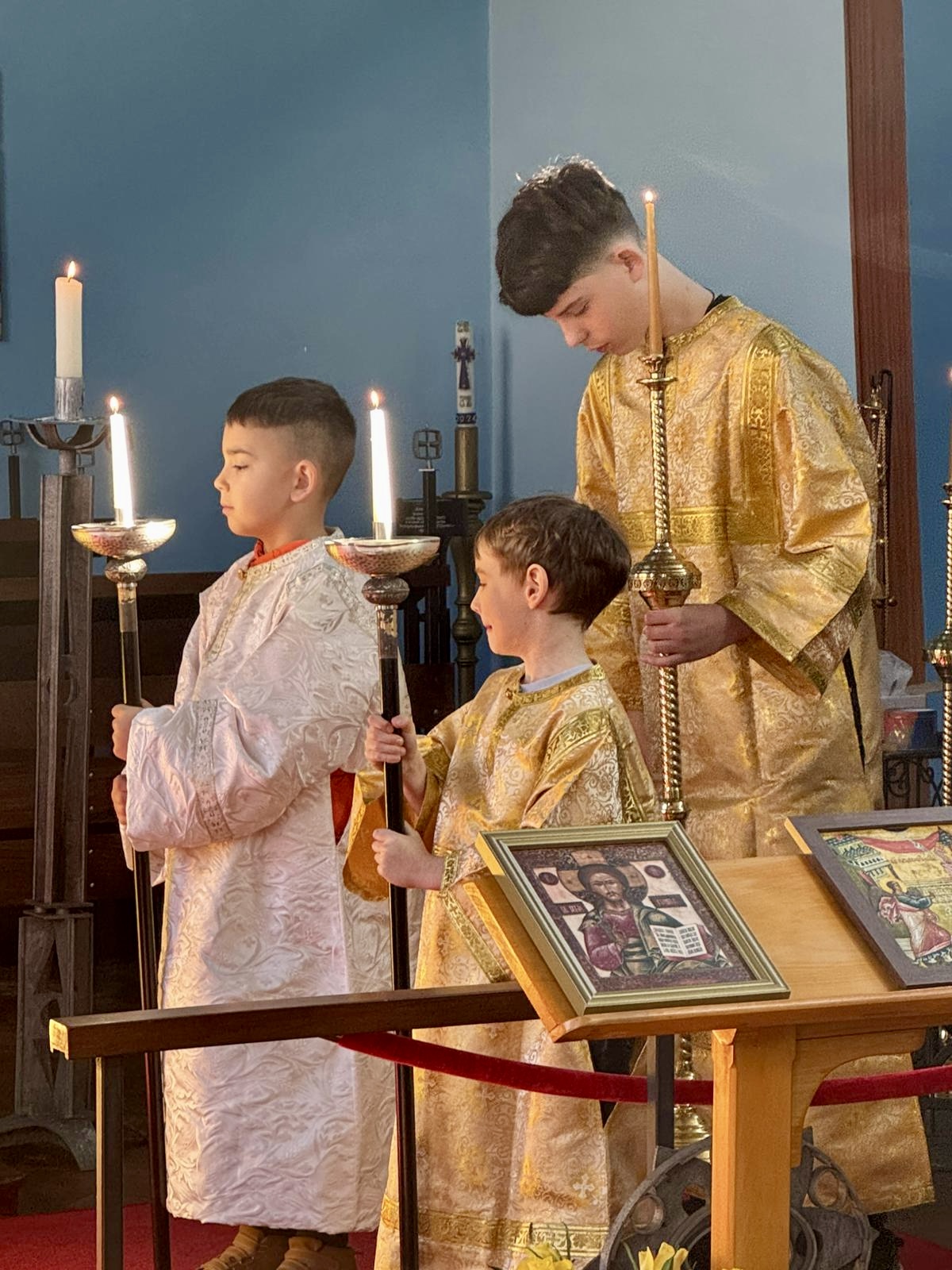

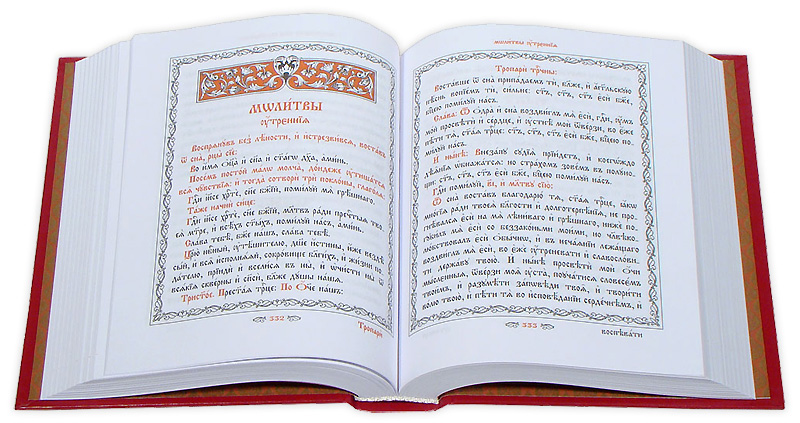 With all of this pre-Lenten talk of the Great Canon, there must be newer parishioners asking “but what is a canon?!?”
With all of this pre-Lenten talk of the Great Canon, there must be newer parishioners asking “but what is a canon?!?”